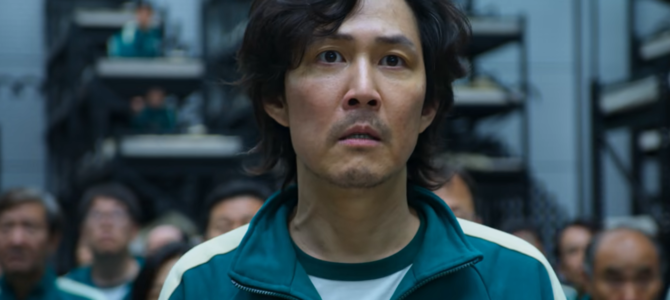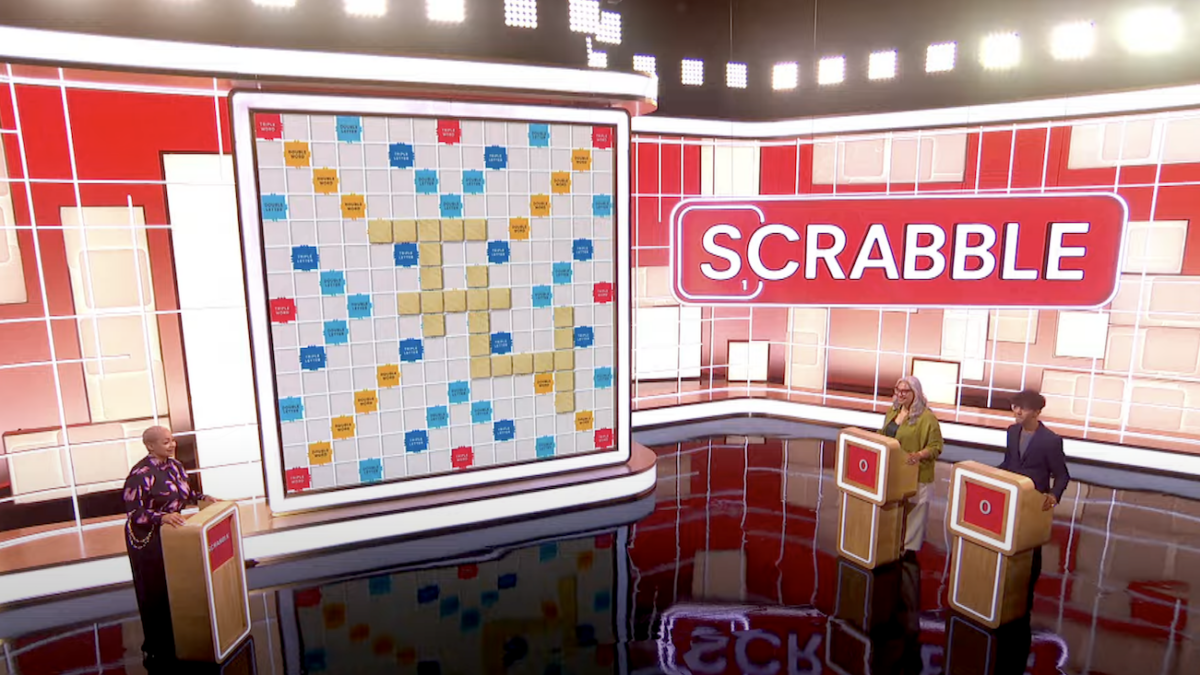
“Squid Game” is officially Netflix’s most-watched series ever and the most popular drama in the U.S. and more than 90 countries currently, but it may be more a thinkpiece than conventional entertainment. That’s not to say it’s not entertaining. Far from it. “Squid Game” is a stylish, streamlined story depicting human desperation so extreme it’s willing to play kids’ games with life-and-death consequences. In fact, the constant bite-your-nails thrills and never-ending graphic violence are exactly what hooks the audience.
The newest K-drama is about a group of down-on-their-luck Seoul residents lured into playing a deadly contest, and it’s entered that inner circle reserved for “Game of Thrones”-sized megahits, except this one did it in about two weeks. Created by Korean writer-director Hwang Dong-hyuk, “Squid Game” depicts a competition in which 456 entrants wearing green jogging outfits – all of whom face severe debt, financial despair, and cultural misanthropy – are offered boundless wealth if they survive a brutal gauntlet of fatal events.
Every stage of competition is a notoriously simple, colorful, and fatal version of children’s playground activities. An example is “Red Light, Green Light,” where those who move after a “red light” are killed. “Squid Game” takes the concept and embodies it exponentially; more than half the competitors are gunned down in the very first stage.
Starring Lee Jung-jae as Seong Gi-Hun, the show’s protagonist, HoYeon Jung as Sae-byeok, a North Korean defector and pickpocket, and Park Hae Soo as Cho Sang-Woo, a ruined businessman, we get to know our characters primarily through how they react to each deadly competition. Therefore, the story centers on violence, visceral and intimate yet impersonal. And the ever-increasing death toll is always completed by random, purple-costumed functionaries, who ultimately reveal the “Squid Game” purpose is created by the ultra-rich international 1 percent.
What Does Binging on a Death Game Say About Us?
Any more explanation of the story becomes a spoiler, but the series reveals its intention and purpose in a taut single season. By keeping the audience attentive, terrified, and even masochistic, only when the series ends will some begin to realize it’s a double-edged sword, a criticism of what makes “Squid Game” possible.
Midway through, we see the chattering class of the extremely wealthy – a few depicted as white Westerners – debating why the competition exists. Some say it’s to harvest human organs, while others argue it’s “forbidden entertainment.” Whether implicit or expressive, clearly these moments are Hwang Dong-hyuk’s tongue-in-cheek criticism of not only the prospect of a “Squid Game” being the globalist state of financial slavery against the mass underclass, but that even viewing a story like this – whether intentionally or instinctively – speaks volumes about our fallen state.
It’s the argument that those watching “Squid Game” on Netflix are just as inconceivably evil and tragic as those watching the fictional “Squid Game” in Seoul. That’s why it’s so popular, because we’re that awful. It’s the age-old argument that a tragedy about evil can evoke tense amusement while creating that amusement in the real world is pure derangement.
That’s exactly how Netflix has successfully approached both sides of the viewership spectrum. It’s done so not only in the United States, but on an unprecedented global level. It’s now quite clear that for a worldwide audience “confrontational” TV – either reflecting today’s real-life concerns or providing a fictional escape from them – is a recipe for success.
Hearing What You Want To Be Told
Depending on where you are on the political spectrum, “Squid Game” employs well-made, mesmerizing violent fiction to reinforce your own beliefs. Like “The Handmaid’s Tale,” “Ted Lasso,” “Stranger Things,” and even “Parasite,” it reinforces viewers’ opinions through the power of well-orchestrated fiction.
For secular leftists, “The Handmaid’s Tale” chimed with the fears of women in Trump’s America. For flyover-country Red State Americans, “Ted Lasso” depicts our instinctive simplicity and optimism. For those yearning for comforting nostalgia, “Stranger Things” hits all the right notes, while a withering critique of late-stage capitalism presented as a family story made “Parasite” Oscar-worthy.
“Squid Game” manages all that with minimal explicit “politics.” But it’s absolutely a rallying cry against modern global capitalism. Even if it’s only one season (at least currently), it’s about poverty, inequality, desperation – the ways money turns us against one another. If its mission statement intends to illustrate how greed and power make the world go ‘round, then its style, substance, and spectrum manage to achieve an extra step: Everyone agrees with it.
A progressive sees a dystopian tragedy, a conservative sees a graphic caricature. A viewer on the left might think we’re a step or few away from a “Squid Game” in the modern world, so “Squid Game” as a global series is a necessary modern fable. A viewer on the right sees a violent depiction of humanity’s fallen state and the necessity of community and values to counter even the most grotesque human drama. One viewer thinks, “This is who we’ve become,” while another sighs sadly, “That’s what we’re capable of.”
A Commentary on Capitalism … From Netflix
Again, “Squid Game” is an exceptional example of a thrilling, engaging, and violent premise that attracts an audience, shares an unrelenting story, and reinforces whatever view of humanity and the world someone holds. Undeniably delivering the explosive gore on which it’s sold, it’s both fantasy and fantastic. It’s also disgusting and will make you duck behind your arms, while starting the next episode.
“Squid Game” offers glaring commentary on the worldwide sense of inequity and inequality, the class division we’ve debated, enabled, or denied for centuries. It illustrates the current economic system killing human beings for money, a comment on “dehumanizing capitalism.”
It’s also unintentionally ironic. After all, “Squid Game” is a global Netflix series that’s an executive combination of a $500 million global production investment in Korea and an analytical viewership algorithm meant to manipulate subscribers on an almost hourly basis.
What’s Going On With Those Subtitles?
And then there are those drastically inaccurate subtitles that have been accused of “erasing” the film’s Korean roots. Was that an accident? Perhaps. But can you imagine a global juggernaut like Netflix making that mistake?
Or is it more likely that Netflix simply knows full well that subtitles are no longer “scary”? In fact, they’re comforting “safe spaces” to those who rely on memes, Tik Tok, and Instagram stories to convey their identity, individuality, or inspiration. Subtitles are so widely accepted that plenty of networks stick them on regardless of whether a series is in a foreign language.
Depending on your views, intentionally “clumsy” subtitles are either magical artistry or engaging manipulation. But what if they’re both? And what if they’re both on purpose? Wouldn’t that work best for the series, and therefore the production company? Netflix knows what it’s doing down to the smallest detail. It’s proven that with “Squid Game.”









